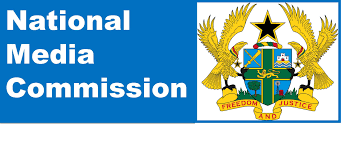Editorial
Let’s back calls to review defilement law
Dear Editor,
I write to back a call by a High Court Judge to review the country’s laws on defilement to ensure that such cases get to their logical conclusion.
In the previous edition of your paper, the judge, Justice Gloria Mensah-Bonsu called for a second look at Section 101(1) of the Criminal Offences Act 29.
That in her view could ensure proper compensation for defilement victims.
According to the report, a culprit in such cases was liable on summary conviction to a term of imprisonment of seven years minimum or 25 years maximum.
But being a strictly liability law with no option of a fine, it has become difficult, by my layman understanding, to fine the culprits to compensate the victims, especially in cases where the act results in pregnancy.
I want to appeal to the authorities, specifically Parliament to consider this human right centered call to begin the process.
As it is now, some families of victims of such crimes would consider monetary ‘gains’ over the punishment to be meted out to the culprit.
Sometimes, one cannot begrudge them for that judgment because their living conditions may be poor and could feed on what the culprit would use to buy their ‘silence’.
But when they are aware the case could fetch them something substantial in addition to a conviction, they may cooperate to ensure the match gets to its logical conclusion.
Adwoa Wadie,
Accra
Editorial
NMC must enforceguidelines to protectviewers, especially minors

Dear Editor,
I WRITE to express my growing concern about the increasing display of adult content on some television stations in the country.
These programmes, often aired during hours when children are most likely to be watching, pose a serious threat to their moral development and general well-being.
Television remains one of the strongest influences on young people, and stations have a responsibility to ensure that their content reflects the values we seek to instil in our society.
Unfortunately, some channels appear to prioritise sensationalism and profit over public safety and decency.
Such content not only exposes children to material they are not prepared to process but also undermines parents’ efforts to guide their behaviour.
I call on the National Media Commission (NMC) and other regulatory bodies to intensify monitoring and enforce stricter guidelines to protect viewers, especially minors.
Broadcasters must be reminded of their duty to promote responsible and wholesome programming.
Our airwaves should uplift, educate, and inform — not endanger the moral fabric of the next generation.
Eugene Ampiaw,
Accra
Join our WhatsApp Channel now!
https://whatsapp.com/channel/0029VbBElzjInlqHhl1aTU27
Editorial
Balancing faith,discipline at Wesley Girls SHS
Dear Editor,
I AM writing to share my thoughts on the ongoing issue at Wesley Girls’ Senior High School, which has attracted national attention after the Deputy Attorney General released a statement in court.
The matter is about whether Muslim students are being denied the right to freely practice their religion, and whether they are being compelled to follow practices that go against their faith.
To me, this is not just a legal issue but a question of fairness and respect in our schools.
While the Constitution guarantees every student the right to practice their faith, schools also have traditions and rules that must be respected. As the saying goes, “When you go to Rome, you do what Romans do.” If a teacher is teaching, it is not right for a student to suddenly leave for prayers. That disrupts learning.
Instead, schools should provide a clear time and place for worship, so that students can honour their faith without disturbing academic work. There is time for everything; time to learn, and time to pray.
Wesley Girls SHS can continue to uphold its Methodist heritage while also respecting the rights of Muslim students.
This compromise will protect unity and ensure that our schools remain places of both discipline and inclusion.
Princess Wonovi
Accra
Join our WhatsApp Channel now!
https://whatsapp.com/channel/0029VbBElzjInlqHhl1aTU27






